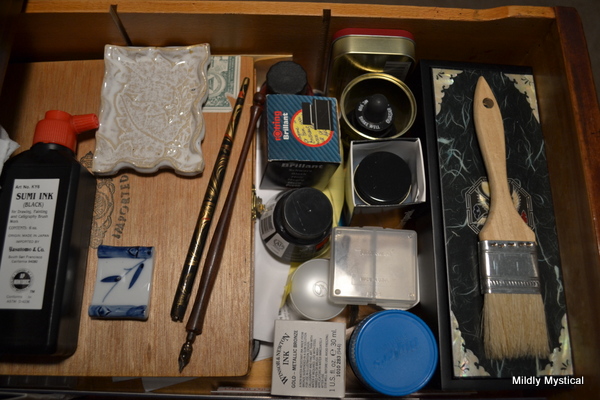Years ago, when I was doing a lot of calligraphy, I lettered a gift for my son’s elementary school teacher. It was a line from Kahlil Gibran: Work is love made visible. As an at-home mother doing unpaid work, I found encouragement in those words. They also spoke to the way this wonderful teacher gave so much of herself to her students. She brought out the best in them, and inspired me as well.
I happened to see her last week at the gym, where she told me that she still keeps that piece of calligraphy on her desk. I’m touched that she still values it after all these years. The idea of work and love being connected remains meaningful to me, though I think about it in broader ways now that my children are grown.
Gibran not only speaks of where the best work originates, but offers a different way of understanding the purpose of work. His is a world view that values the heart more than remuneration. It views life as more than a market exchange, and sees work as an offering, not a commodity.
This perspective is a lifeline when we’re trying to create something new. In a world that measures the value of work by the price it brings in the marketplace, creative effort with no guarantee of reward can look like a waste of time and energy. Showing up to work when there’s no certainty of the outcome requires ignoring the clamor of the buying and selling, and placing ourselves in the service of something else. It can feel pretty risky.
Gibran understands that submitting to the work we are called to do is an act of devotion. We manifest love of life, of other people, of art, and of the divine spark in creation, when we undertake our work. What I’m realizing these days is that an artist’s work, too, is love made visible.
In Matthew, Jesus is quoted as saying, “Therefore I tell you, do not worry about your life, what you will eat or what you will drink, or about your body, what you will wear. Is not life more than food, and the body more than clothing?” Materialistic priorities get in the way of seeking a rich spiritual life, or what he calls the kingdom of God. Over and over, he tries to get people to see that through dwelling more fully in the spirit we find not only our truest self, but the essence of life, and joy, and meaning.
His teachings help us focus on the work in front of us, apart from its material reward: “So do not worry about tomorrow, for tomorrow will bring worries of its own. Today’s trouble is enough for today.” We can’t make the world praise or even accept our work; we can’t expect the market to validate our efforts. We can only do our best at the effort we’re making today.
We’re all asked to look at the world with love, to listen for the ways it calls us, and to respond as best we can. That call and response depends on where we meet the world, on our gifts and circumstances. It can take unlimited forms.
But in whatever way we respond, answering that call becomes more meaningful, and perhaps somewhat easier, in remembering that we are trying to manifest a spark of the divine—to find a way of making love visible.


Susan,
Your writing always touches me and this one did in a special way. Thank you for sharing your talent of putting your feelings into words.
Thanks, Marilyn. I’m glad to know that this post meant something to you, and I would say that love is absolutely visible in the work you do.